
Accessing Emergency Funds With Poor Credit History
Accessing emergency funds can be challenging for individuals with a poor credit history. This article aims to explore the impact of poor credit history on one’s ability to obtain emergency funds and discuss alternative options available for those facing this situation. Furthermore, it will provide guidance on how to build a solid emergency fund despite …
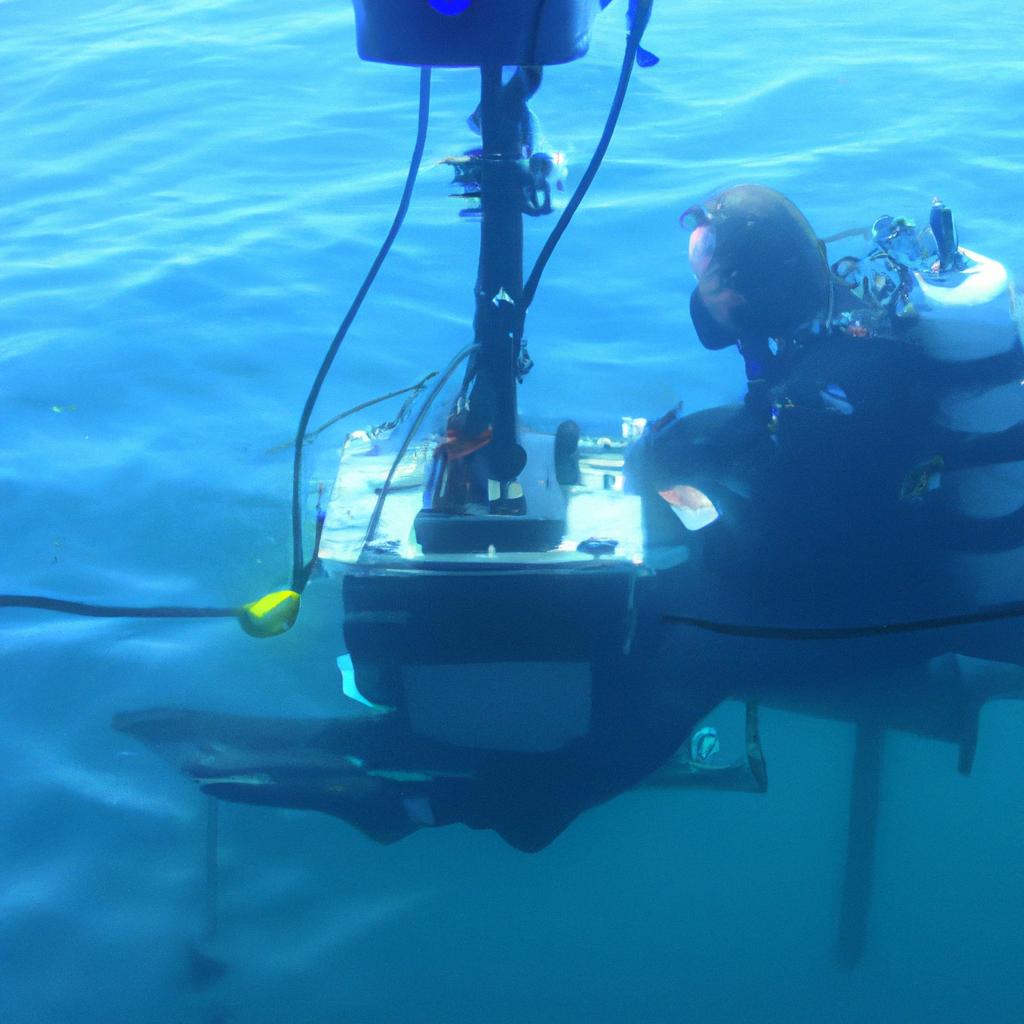
Deep Sea Exploration in Earth Sciences: The Mysteries of Oceanography
Deep sea exploration in earth sciences has long captivated the interest of researchers and scientists alike. The vast expanse of the world’s oceans holds countless mysteries yet to be unraveled, making it a fascinating field of study for oceanographers. One such example that highlights the enigma surrounding deep-sea exploration is the discovery of hydrothermal vents …

Marine Biology: The Depths of Oceanography
The study of marine biology delves into the vast depths of oceanography, exploring the complex and diverse ecosystems that thrive beneath the surface. From microscopic organisms to majestic whales, marine biologists unravel the secrets of these intricate underwater worlds. One captivating example is the research conducted on coral reefs in the Great Barrier Reef, where …

Cloud Microphysics in Atmospheric Science: Earth’s Sky
Cloud microphysics is a crucial field of study within atmospheric science that focuses on the physical processes occurring within clouds. By examining the behavior and formation of cloud particles, scientists can gain valuable insights into various meteorological phenomena such as precipitation, fog, and severe weather events. For instance, consider a hypothetical scenario where a large …
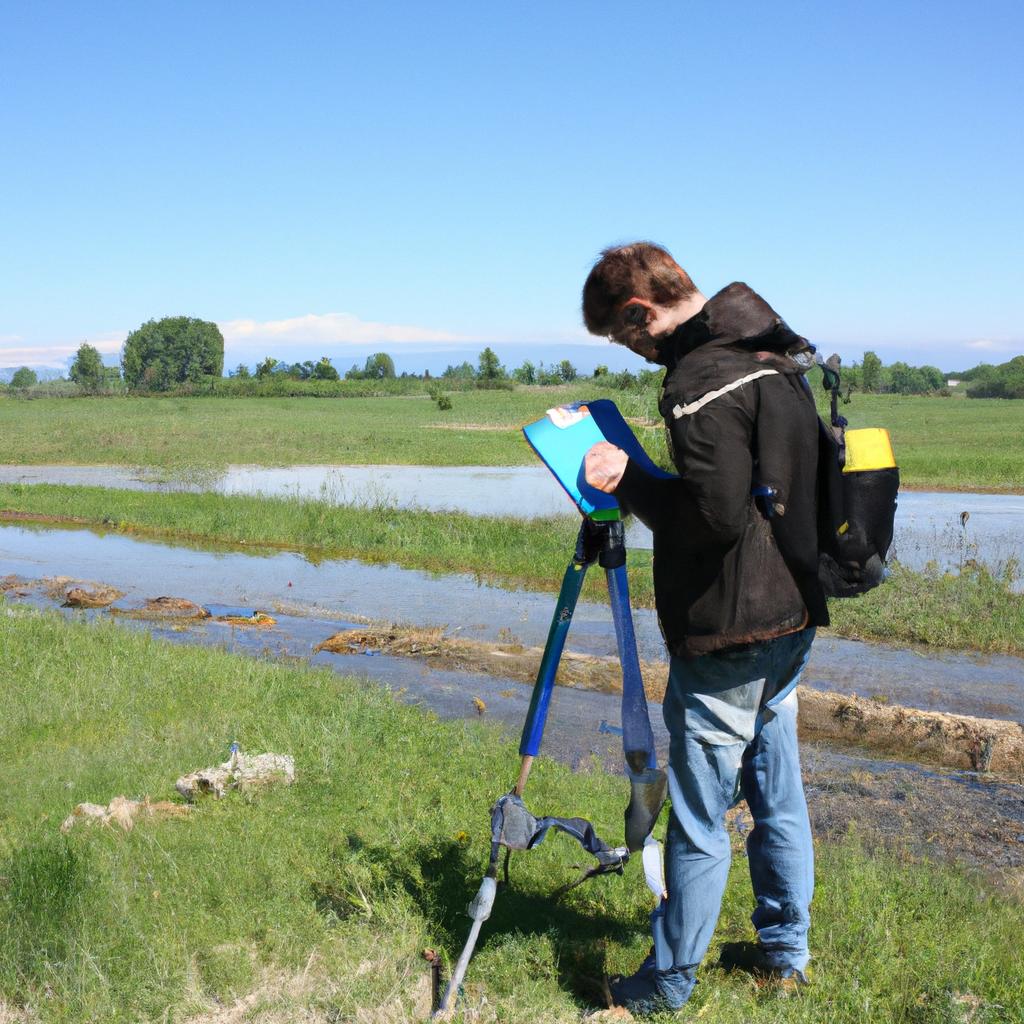
Watershed: A Comprehensive Guide to Hydrology in Earth Sciences
Watershed: A Comprehensive Guide to Hydrology in Earth Sciences examines the intricate processes and dynamics that shape the movement of water on our planet. Through a combination of theoretical concepts, empirical data analysis, and practical applications, this guide provides an essential resource for understanding hydrological systems. As an example, consider a hypothetical case study where …

Water Resources in Earth Sciences: A Geo-Financial Perspective
Water resources play a crucial role in Earth sciences, serving as a vital component for the sustenance of life and the functioning of ecosystems. Understanding the geo-financial perspective of water resources is essential to comprehend its significance in various sectors such as agriculture, industry, and energy production. This article explores the intricate relationship between water …

Geo-Financial: Earth Sciences through Financial Analysis
The intersection of earth sciences and financial analysis, known as Geo-Financial, is a burgeoning field that offers valuable insights into the relationship between natural resources and economic activities. By applying financial techniques to geological data, researchers can uncover patterns and trends that inform decision-making in industries such as mining, energy exploration, and environmental management. For …

Radiative Forcing in Earth Sciences: Atmospheric Science
Radiative forcing, a concept widely studied in the field of atmospheric science, plays a crucial role in understanding climate change and its implications. By definition, radiative forcing represents the perturbation caused by changes in external factors that affect Earth’s energy balance. For instance, consider the hypothetical case study of an increase in greenhouse gas concentration …

Fisheries in Earth Sciences: The Oceanography Perspective
The depletion of fish stocks in recent years has raised concerns about the sustainability of fisheries worldwide. As a result, there is an increasing need for interdisciplinary research to understand and address the complex dynamics of fisheries from various scientific perspectives. In this article, we explore the role of oceanography in the study of fisheries, …

Coral Reefs: Their Significance in Earth Sciences and Oceanography
Coral reefs, with their vibrant underwater ecosystems and intricate formations, are a topic of great significance in the fields of Earth sciences and oceanography. These delicate structures provide invaluable insights into various aspects of our planet’s history and offer a wealth of information about the oceans’ current state. For instance, let us consider the Great …
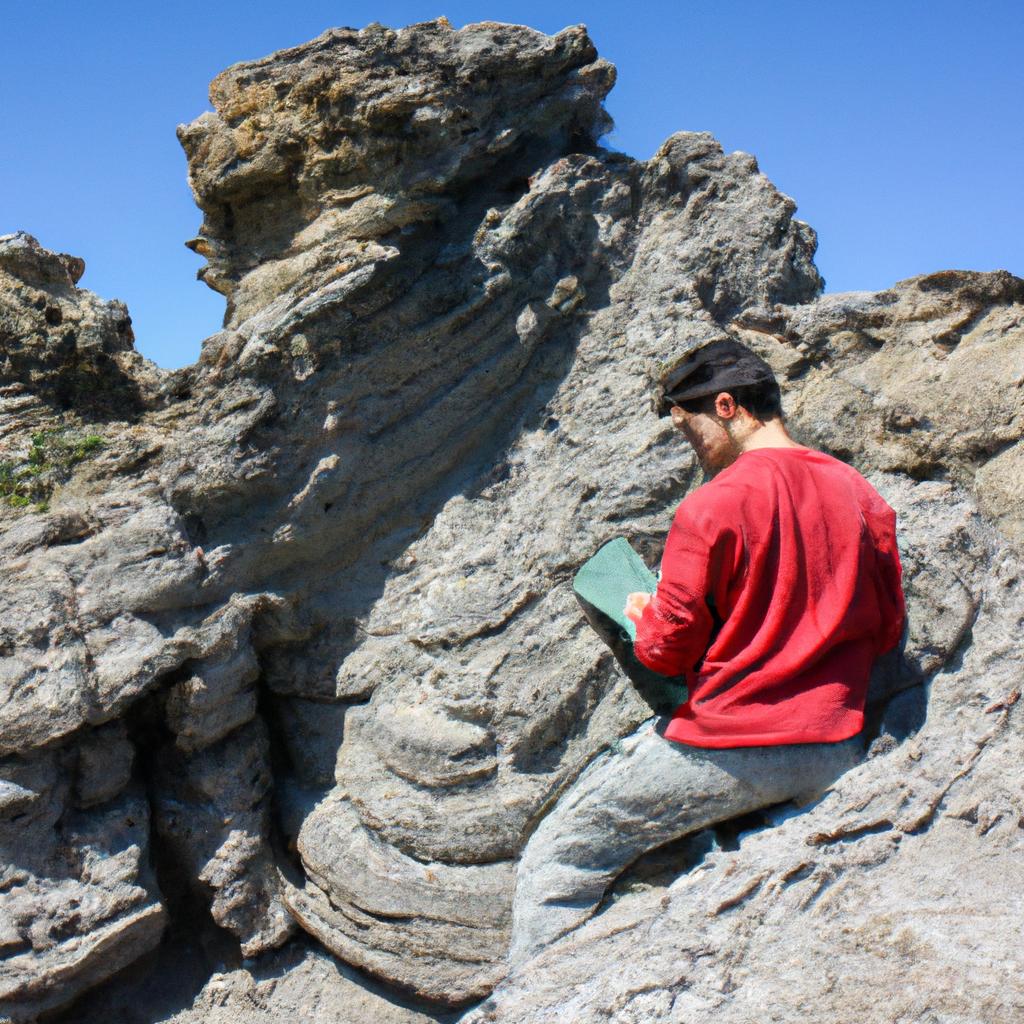
Structural Geology: Earth’s Geological Framework
Structural geology is an essential sub-discipline within the field of geology, providing a framework for understanding and interpreting Earth’s geological features. By investigating the deformation and arrangement of rocks at various scales, structural geologists strive to unravel the complex history of our planet. One fascinating example that highlights the significance of structural geology is the …

Oceanography: Earth’s Aquatic Realms
The vast and mysterious oceans that cover over 70% of the Earth’s surface have captivated human curiosity for centuries. Oceanography, the scientific study of these aquatic realms, encompasses a wide range of disciplines including physical oceanography, marine biology, chemical oceanography, and geological oceanography. By examining the complex interactions between water, atmosphere, land, and life within …

Meteorology: Weather Patterns and Climate Dynamics in Earth Sciences
Weather patterns and climate dynamics play a crucial role in understanding Earth’s complex atmospheric system. By studying meteorology, scientists gain insights into the various factors that shape our weather conditions and long-term climate trends. This article aims to explore the intricate relationship between weather patterns and climate dynamics, shedding light on how they influence each …

Climate Change in Meteorology: Earth’s Changing Environment
Climate change is a pressing issue that has garnered significant attention in recent years. It refers to the long-term alteration of temperature patterns, precipitation levels, and other aspects of Earth’s climate system due to human activity. As meteorologists play a crucial role in understanding and predicting weather conditions, their study of climate change becomes paramount. …

Geology in Earth Sciences: An Informative Exploration
Geology, a prominent discipline within the realm of Earth Sciences, encompasses the study of the solid materials that constitute our planet’s surface and interior. By examining rocks, minerals, and other geological formations, geologists unravel the complex history and processes that have shaped Earth over millions of years. For instance, imagine a scenario where an oil …

Aerosol Pollution in Earth Sciences: Atmospheric Science
Aerosol pollution is a significant concern within the field of Earth Sciences, particularly in the realm of Atmospheric Science. The study of aerosols encompasses particles suspended in the atmosphere, ranging from natural sources such as dust and sea salt to anthropogenic emissions like industrial pollutants and vehicle exhausts. These aerosols play a crucial role in …

Climatology in Earth Sciences: An Informative Exploration in Meteorology
Climatology, a branch of Earth Sciences that focuses on the study of long-term weather patterns and climate change, plays a crucial role in our understanding of meteorology. By examining historical data and employing advanced scientific techniques, climatologists strive to unravel the complexities surrounding Earth’s climate system. For instance, consider the case study of a coastal …
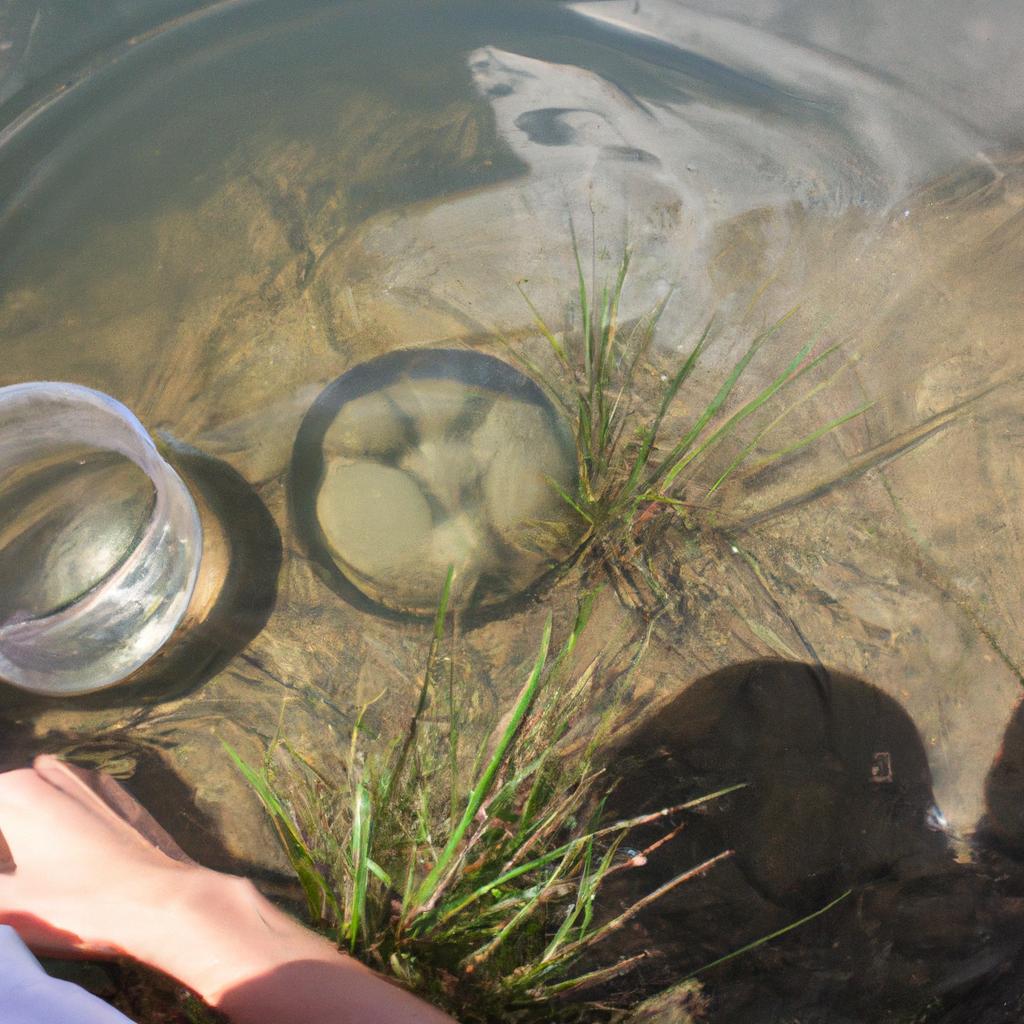
Surface Water in Hydrology: Earth’s Aquatic Systems
Surface water is a crucial component of Earth’s hydrological cycle, playing a vital role in shaping the planet’s aquatic systems. It encompasses all bodies of water visible at the Earth’s surface, including rivers, lakes, and oceans. These interconnected systems are dynamic and complex, influenced by various factors such as climate patterns, topography, and human activities. …
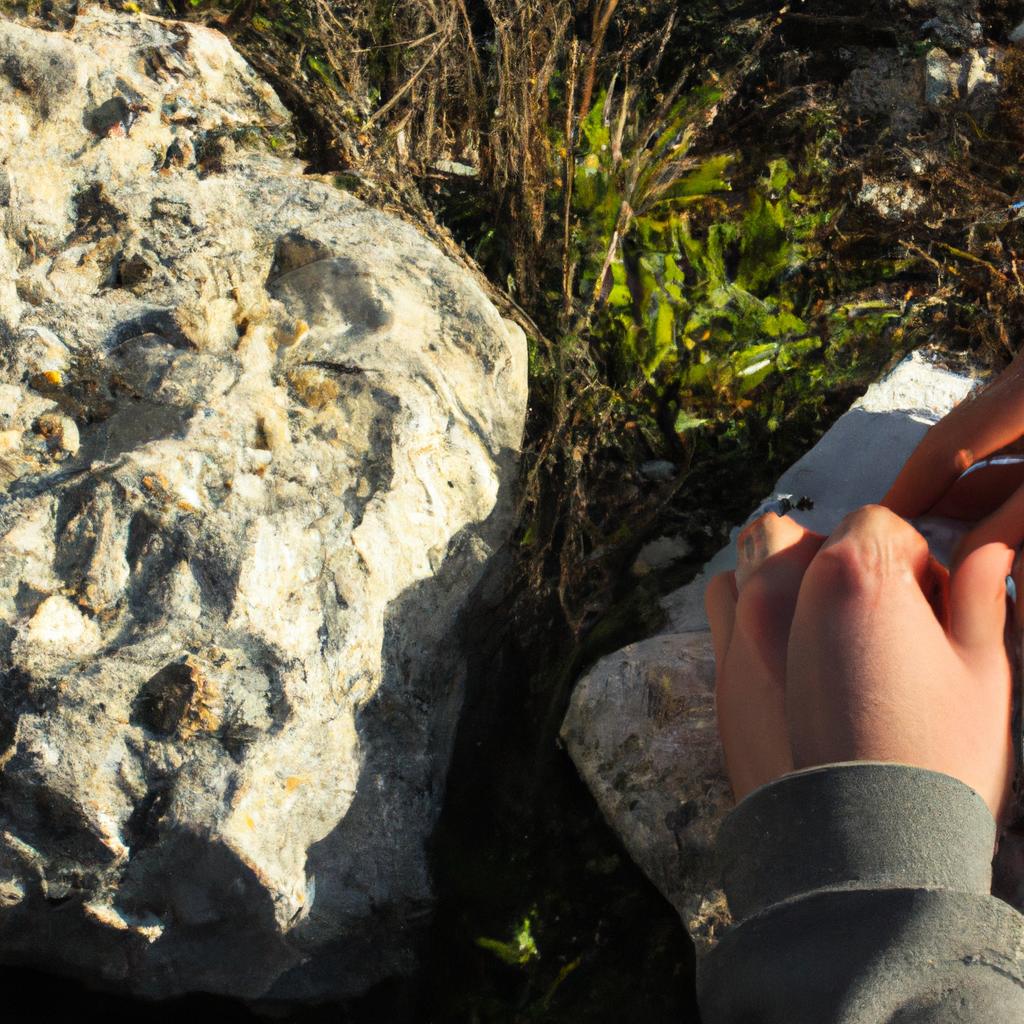
Metamorphic Rocks: Earth’s Transformed Geological Structures
Metamorphic rocks, the result of intense heat and pressure acting upon existing rock types, are a distinctive class of geological structures that have undergone profound transformation. These rocks exhibit fascinating characteristics and provide valuable insights into Earth’s dynamic processes over time. For instance, consider the hypothetical case study of limestone transforming into marble under extreme …

Renewable Energy in Geo-Financial Earth Sciences
The global demand for energy continues to rise, prompting the need for alternative and sustainable sources of power. Among these alternatives, renewable energy has gained significant attention due to its potential to mitigate climate change and reduce dependence on fossil fuels. In particular, the field of Geo-Financial Earth Sciences offers valuable insights into harnessing renewable …

Groundwater: The Depths of Earth Sciences: Hydrology
Groundwater, an essential component of the Earth’s water cycle, plays a crucial role in sustaining life and supporting various ecosystems. This vast reservoir of freshwater is hidden beneath the surface, occupying the spaces between soil particles and rock layers known as aquifers. Understanding groundwater dynamics requires a comprehensive grasp of hydrology, which delves into the …

Atmospheric Science: Earth’s Atmospheric Dynamics
The study of atmospheric science is crucial for understanding the intricate dynamics and complexities of Earth’s atmosphere. By examining various factors such as temperature, humidity, pressure, and wind patterns, scientists gain insights into how these elements interact to shape our weather systems and climate trends. One intriguing example that highlights the significance of atmospheric science …

Ocean Currents: A Key Component of Earth Sciences
Ocean currents play a vital role in Earth sciences, serving as a key component of the complex dynamics that shape our planet’s climate and ecosystems. These powerful flows of water have far-reaching effects on global weather patterns, marine life distribution, and even human activities such as shipping and fishing. For instance, consider the Gulf Stream, …

Erosion: Hydrologic Processes in Earth Sciences
Erosion is a phenomenon that has captivated the attention of scientists, geologists, and environmentalists alike. Its immense impact on landscapes and ecosystems has spurred numerous studies investigating its hydrologic processes in the field of Earth Sciences. This article aims to delve into the intricate workings behind erosion, exploring how water plays a pivotal role in …
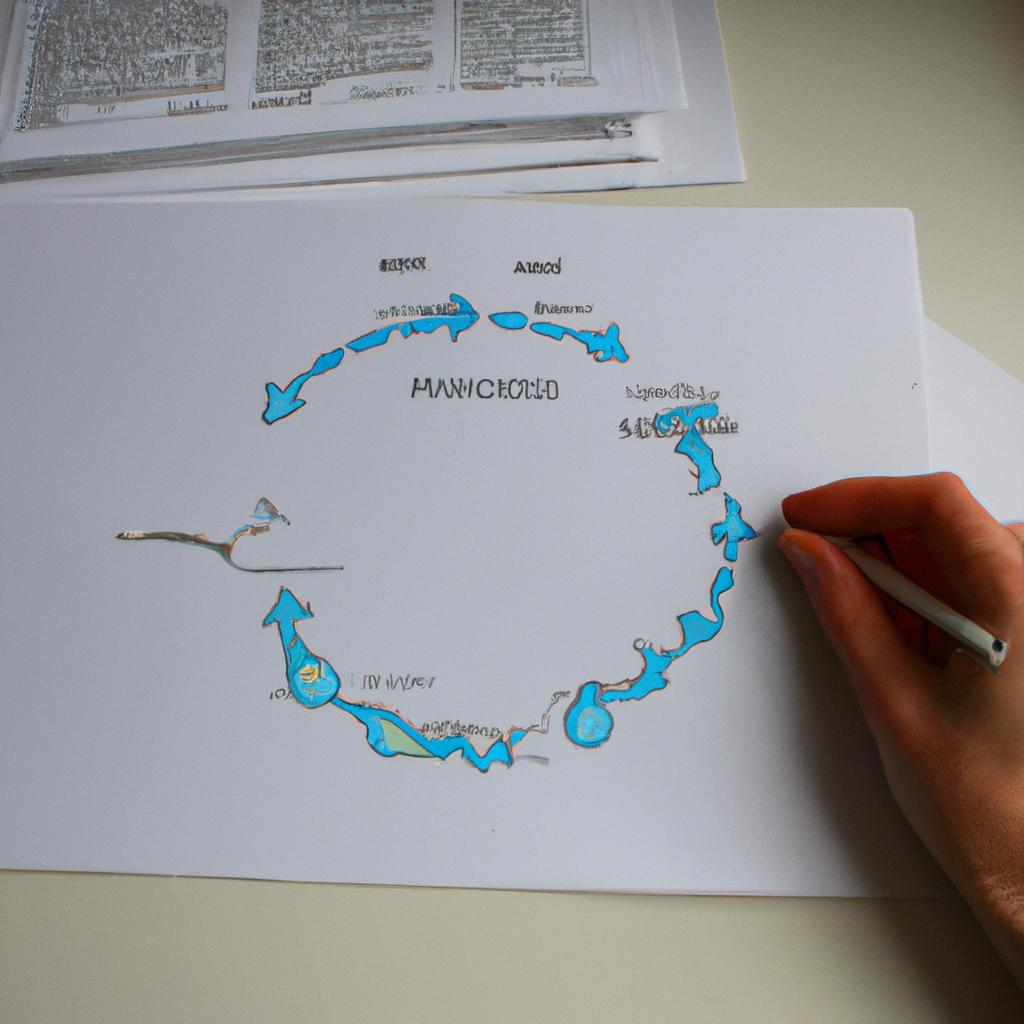
The Water Cycle: Hydrology in Earth Sciences
The water cycle, also known as the hydrological cycle, is a fundamental process in Earth sciences that plays a crucial role in regulating the distribution and availability of water resources on our planet. This complex system involves various interconnected processes such as evaporation, condensation, precipitation, and runoff. Understanding the dynamics of the water cycle is …
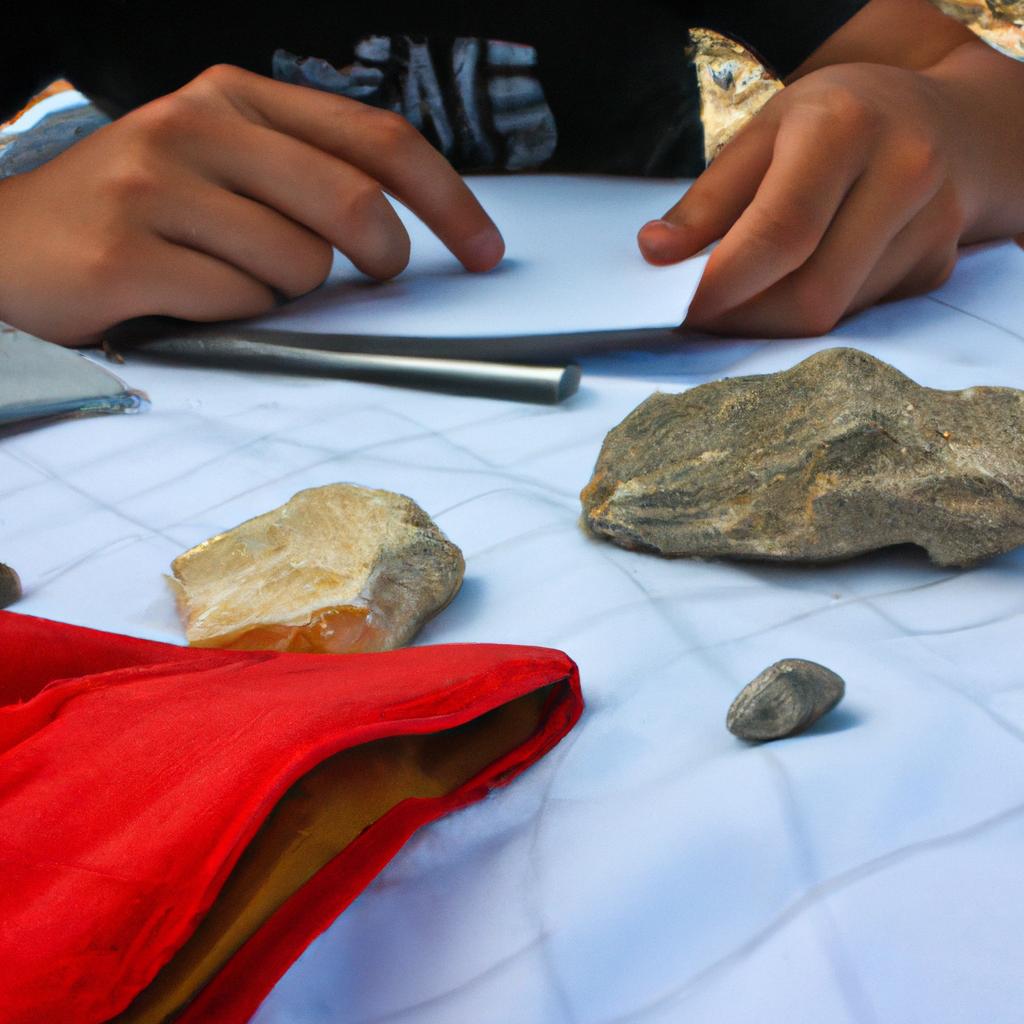
Igneous Rocks: The Intriguing World of Earth’s Geology
The world beneath our feet is a fascinating realm of hidden wonders, where the forces of nature have shaped and sculpted the very foundations of our planet. One such wonder lies in the study of igneous rocks, an intriguing branch of geology that explores the origins and characteristics of these molten marvels. Imagine a volcanic …

Environmental Conservation in Geo-Financial Earth Sciences: A Comprehensive Overview
Environmental conservation plays a crucial role in the field of geo-financial earth sciences, as it encompasses various disciplines that examine and analyze the intricate relationship between human activities and the environment. One compelling example is the case study of a mining operation in a remote region, where extensive extraction of natural resources has resulted in …

Flooding and Hydrology: Earth Sciences
Flooding is a natural hazard that poses significant risks to both human populations and the environment. The study of flooding falls within the realm of hydrology, which is a branch of earth sciences focused on understanding the distribution, movement, and properties of water on Earth’s surface. By analyzing various factors such as rainfall patterns, topography, …

Atmospheric Circulation: The Dynamics in Earth Sciences
Atmospheric circulation is a fundamental concept in Earth sciences that plays a crucial role in shaping our planet’s climate and weather patterns. It refers to the large-scale movement of air around the globe, driven by various factors such as temperature gradients, pressure systems, and the rotation of the Earth. To better understand this intricate dynamism …
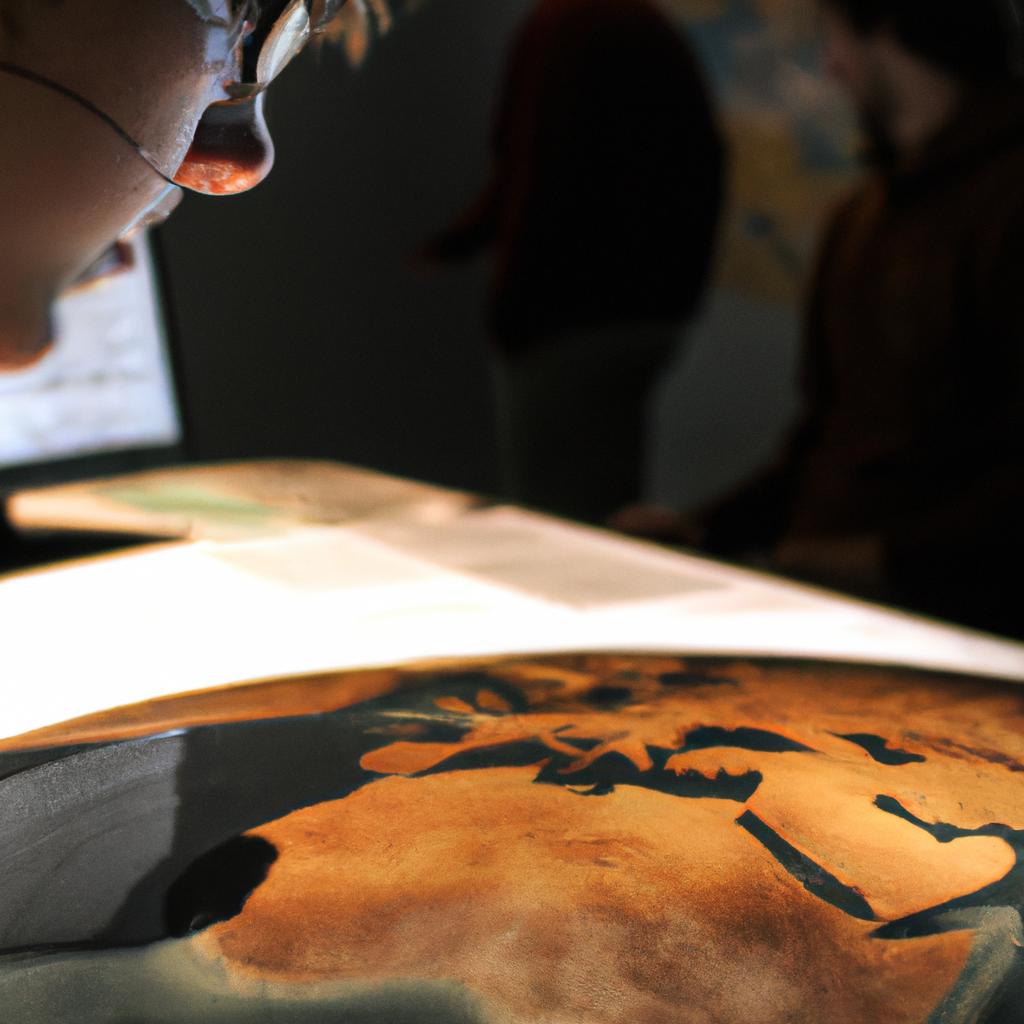
Plate Tectonics: Earth’s Dynamic Geology
Plate tectonics is an essential concept in the field of geology, offering a framework for understanding Earth’s dynamic nature. The theory proposes that the Earth’s lithosphere, comprised of several rigid plates, is constantly moving and interacting with one another at their boundaries. This movement leads to various geological phenomena such as earthquakes, volcanic activity, and …

Tropospheric Ozone: Its Impact in Atmospheric Science
Tropospheric ozone, a key component of air pollution and greenhouse gases, plays a significant role in atmospheric science. Its impact on the Earth’s climate system and human health has garnered considerable attention from scientists worldwide. For instance, consider a hypothetical scenario where high levels of tropospheric ozone persist over an urban area for an extended …

Sustainable Development in Earth Sciences: A Geo-Financial Perspective
Sustainable development in the field of Earth Sciences has gained significant attention in recent years due to its potential impact on both the environment and financial sectors. This article aims to explore sustainable development from a geo-financial perspective, highlighting the interconnectedness between geological processes, economic activities, and environmental sustainability. By adopting an academic style of …
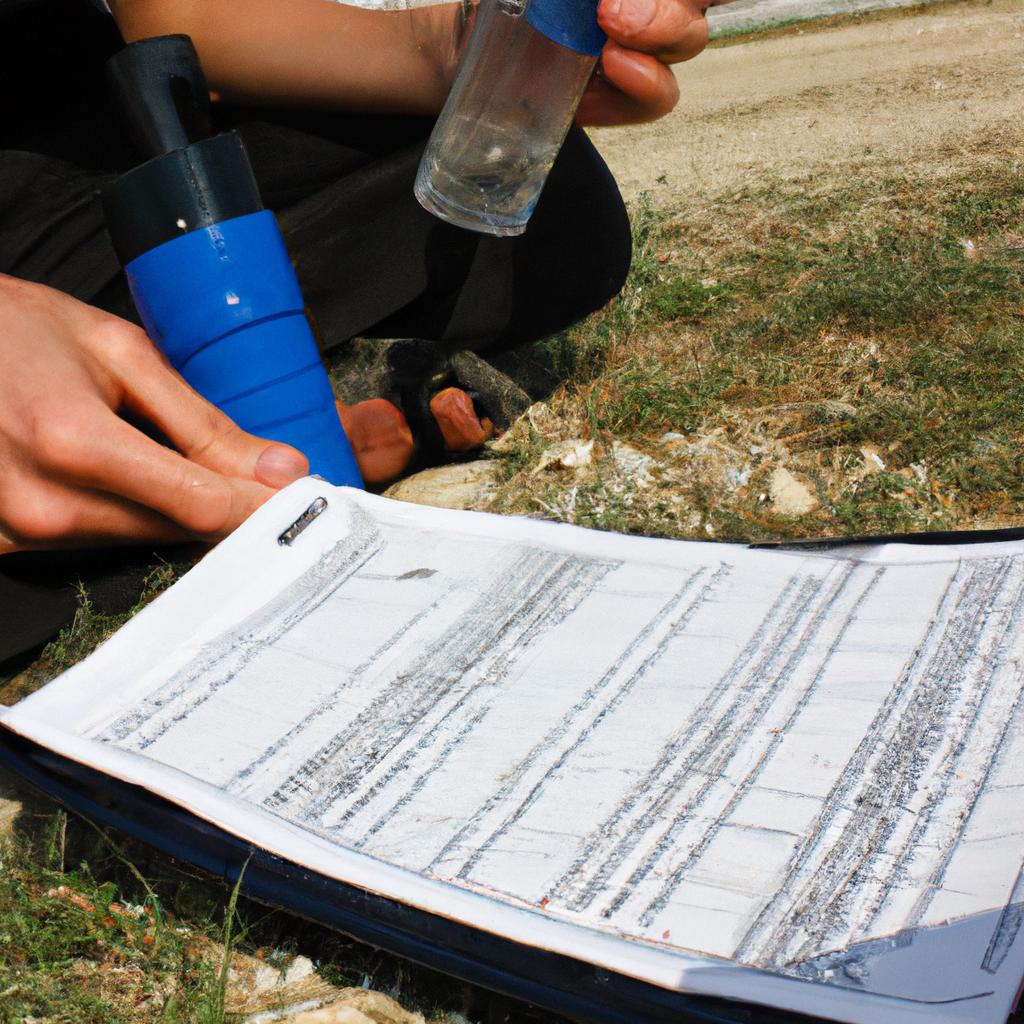
Hydrology in Earth Sciences: Water Systems
Hydrology, a branch of Earth Sciences focused on the study of water systems, plays a crucial role in understanding and managing our planet’s most vital resource. Water is an essential element for all life forms, shaping landscapes through erosion and deposition processes and sustaining ecosystems around the globe. By investigating the movement, distribution, and quality …
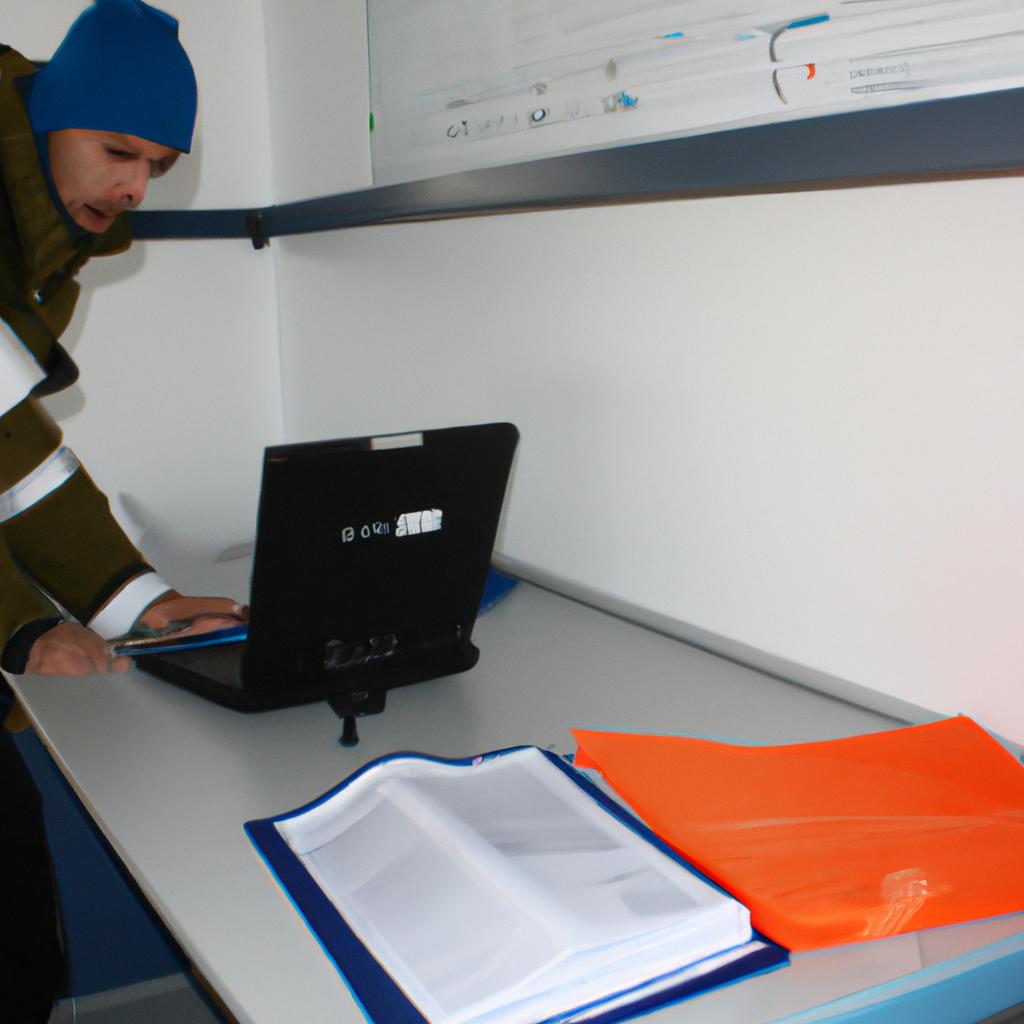
Climate Models in Earth Sciences: Atmospheric Science
Climate models play a crucial role in the field of Earth Sciences, particularly in atmospheric science. By simulating complex interactions between various components of the climate system, these models provide valuable insights into past and future climate conditions. For instance, imagine a scenario where scientists are trying to understand the impact of increasing greenhouse gas …

Meteorological Phenomena in Earth Sciences: A Comprehensive Overview
Meteorological phenomena play a crucial role in Earth sciences, providing valuable insights into the complex dynamics of our planet’s atmosphere. Understanding these phenomena is essential for predicting weather patterns, climate change, and their impact on various ecosystems. This comprehensive overview aims to examine a range of meteorological phenomena, exploring their causes, characteristics, and implications. One …
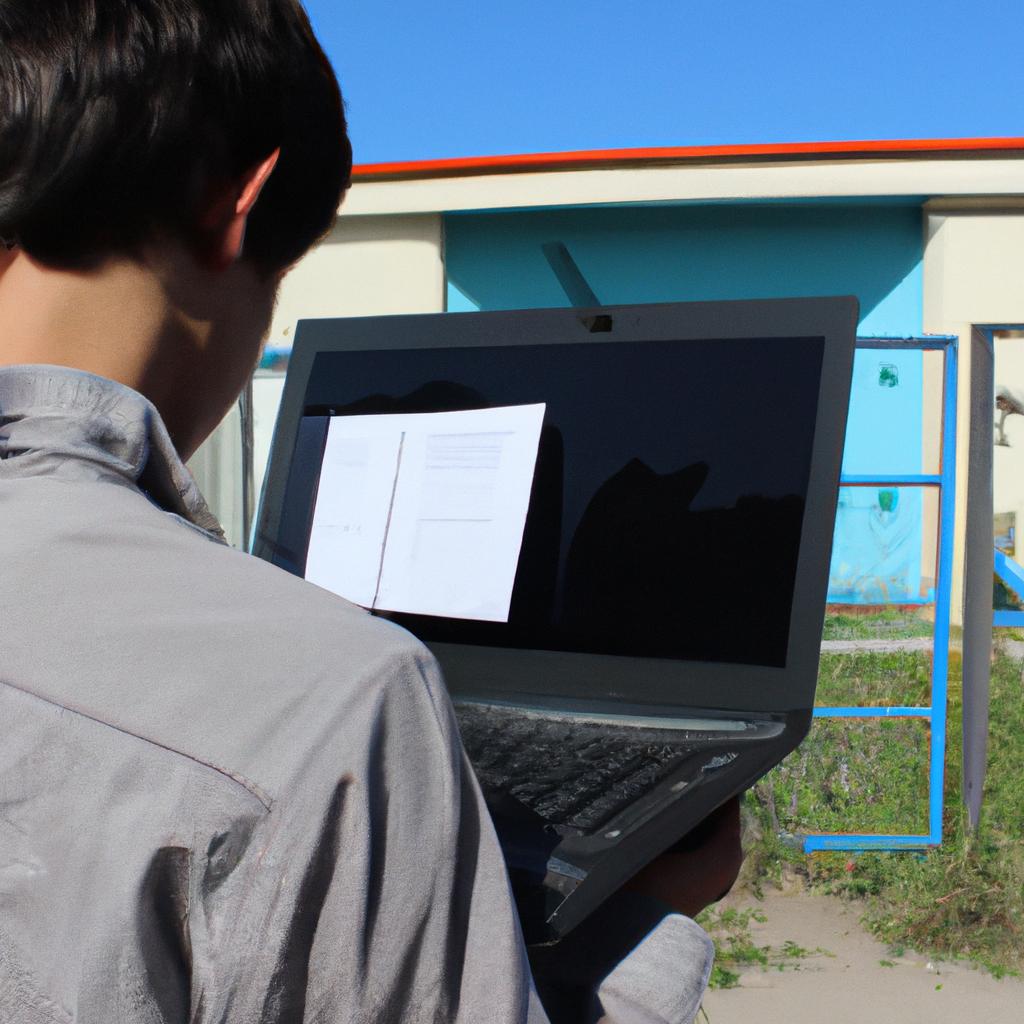
Natural Disasters in Earth Sciences: A Comprehensive Exploration into Geo-Financial Implications
Natural disasters have always been a force to be reckoned with, unleashing their destructive power upon communities and ecosystems alike. From earthquakes that shake the very foundation of cities to hurricanes that ravage coastal areas, these cataclysmic events can cause significant societal and economic impacts. Moreover, the study of natural disasters in earth sciences has …
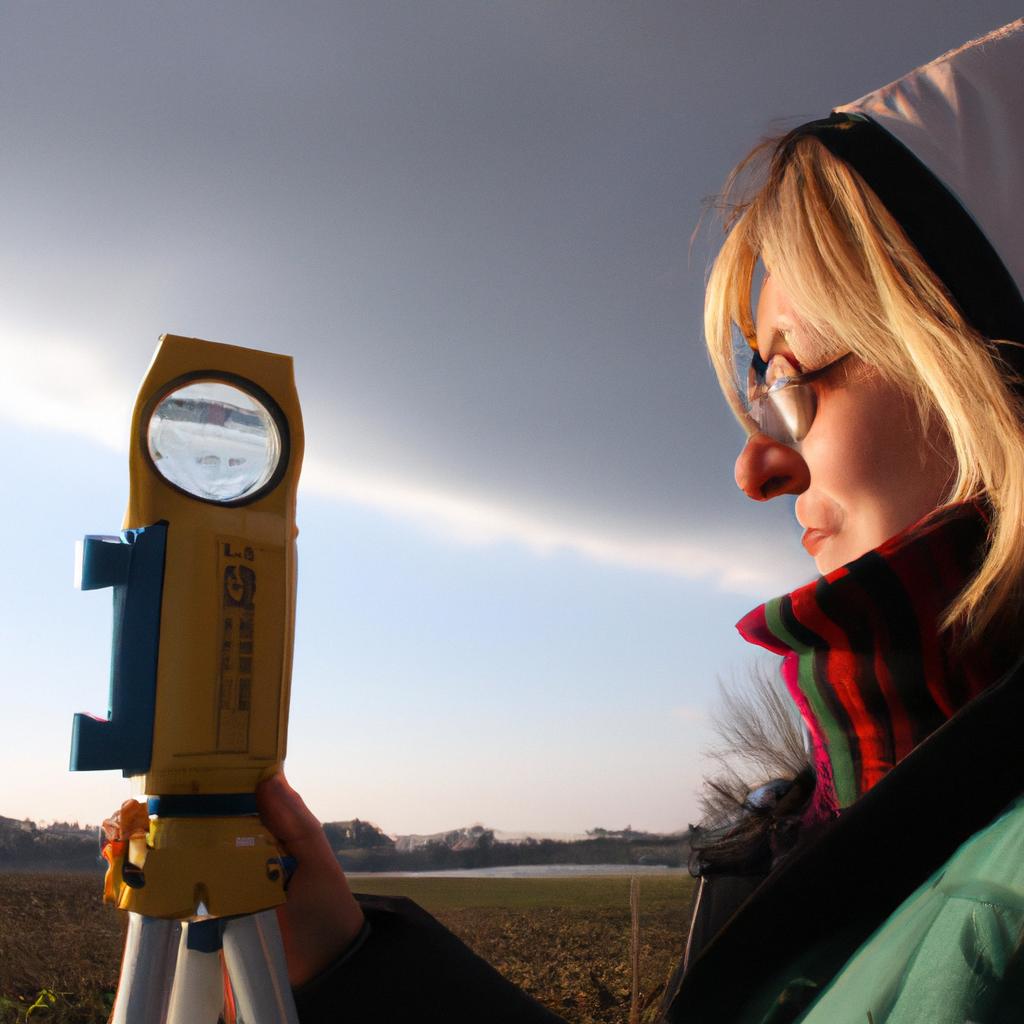
Weather Systems: A Meteorological Perspective
Weather systems are complex and dynamic phenomena that play a crucial role in our daily lives. From determining whether we need an umbrella to predicting the path of hurricanes, understanding weather systems is vital for making informed decisions and ensuring public safety. This article aims to provide a meteorological perspective on weather systems by exploring …
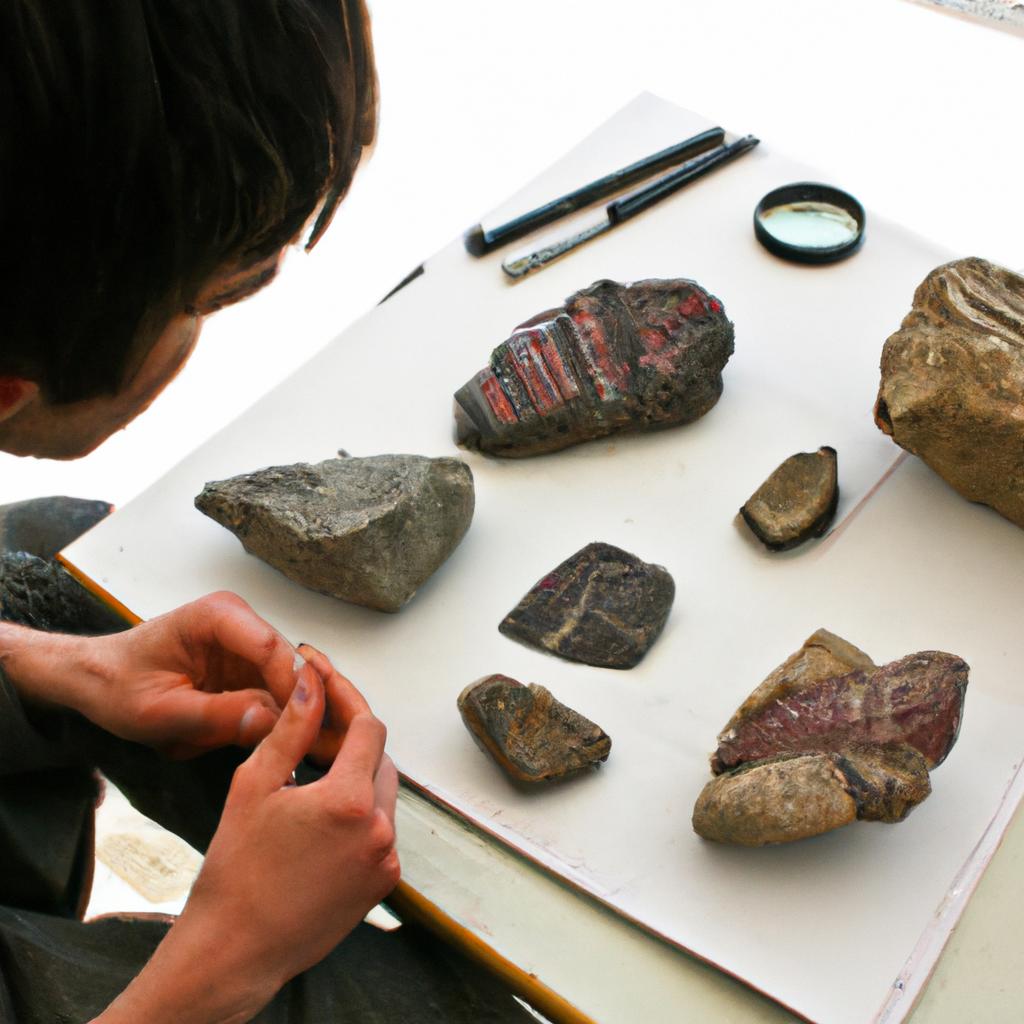
Sedimentology in Earth Sciences: The Geological Context
Sedimentology, a branch of Earth Sciences, plays a crucial role in understanding the geological context of our planet. By examining the composition, texture, and structure of sediments and sedimentary rocks, sedimentologists are able to unravel the complex history and processes that have shaped Earth’s surface over millions of years. For example, consider studying a case …
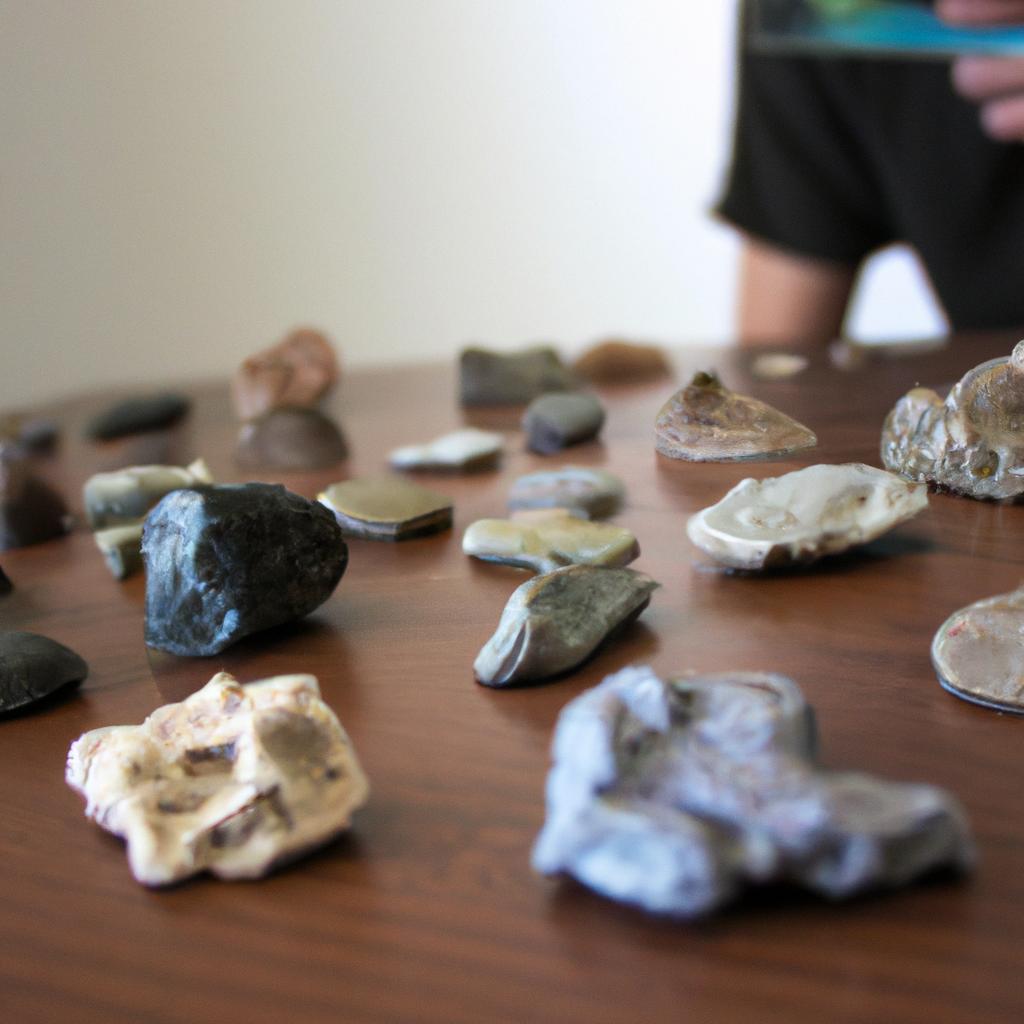
Mineralogy: A Key Component of Earth Sciences: Geology
Mineralogy, an indispensable component of Earth Sciences, particularly Geology, plays a crucial role in unraveling the mysteries of our planet’s composition and history. By examining minerals and their properties, mineralogists provide invaluable insights into geological processes such as rock formation, tectonic plate movements, and the evolution of Earth’s surface over millions of years. For instance, …

Consumer loans play a critical role in the economy
People’s incapacity to pay for their costs with their income is the most significant cause of consumer loans’ expansion. Borrowing money is nothing unusual these days, unlike in the past when it was frowned upon. Loans are taken out for various reasons, including funding a down payment, paying for school, traveling, or renovating a house. …
